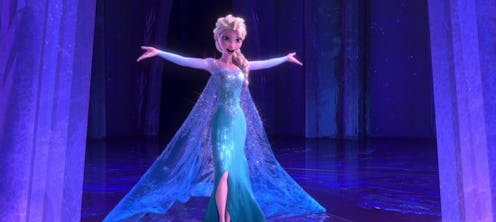Books
It's OK When The Girl Doesn't Get Her Happy Ending

I recently went to Beautiful, the Broadway musical about Carole King. I suspected that it might be schmaltzy and feel-good, but then I remembered that I like schmaltzy and feel-good. I've also been obsessed with Carole King since I first heard her album Tapestry when I was in kindergarten. I more or less feel like she is my mom.
OK, Beautiful was not the best musical I’ve seen, but I was impressed by its ending — and then surprised by how impressed I was. Early in the play, Carole gets together with her songwriting partner. But theirs is not a supportive marriage, and by the end of the play, she leaves him, taking their two young daughters with her. The conclusion of her arc is triumphant: she takes the stage at Carnegie Hall, with her first-ever solo album at the top of the charts, and performs songs that she wrote entirely on her own before a packed audience of adoring fans. She ends the play on a professional and creative high. But she ends it alone: she doesn’t reunite with her ex-husband, and no new love interest shows up for her in the final act.
Even in the year 2015, it still feels like an unusual and brave storytelling choice to give a heroine her happily-ever-after without her soulmate. This is part of what excited so many people about Disney’s Frozen, too: Princess Elsa went through a full character arc, she had a conflict and resolved it, she emerged a stronger person — and her happy ending came prince-free.
Even in these rare instances, you can almost hear the execs being like, “Well, we can’t push the envelope too far. Somebody needs to get a man!” which I suspect is why there are major traditional romantic arcs for other characters in these stories (Princess Anna in Frozen; Cynthia Weil in Beautiful). We still want to hear wedding bells, for Pete’s sake. It’s great to see a woman grow and succeed and discover who she really is, but that just isn’t quite a wedding, y'know?
I see this play out in readers’ responses to the romantic arc in my YA novel This Song Will Save Your Life , which comes out in paperback this month. The book is about Elise, a 16-year-old outcast who becomes an underground DJ sensation and discovers her true identity through her passion for music. She gets together with a slightly older and seemingly much cooler male DJ, Char — short for the Smiths’ song “This Charming Man,” though the reference to “Prince Charming” is not accidental. They hook up for a while, and then they break up — and I swear this isn’t a serious spoiler — because whether or not they stay together is not the central question of the book.
This was the right way for Elise and Char’s relationship to end. He’s both too old and too immature for her, and he doesn’t know how to support her dreams. That said, he’s not a terrible person: he teaches her to DJ and to read a crowd, he gives her confidence — oh, and he’s really hot. The moral of their story isn’t that he and Elise never should have gotten together. It’s that they shouldn’t stay together. Char’s an important catalyst in her life. Over the course of the book he provides her with valuable experiences and insights. But that doesn’t make him her soulmate, and it doesn’t mean she should keep him in her life forever.
This Song Will Save Your Life by Leila Sales, $6, Amazon
This is true in the real world, too, by the way. Just because a relationship ends doesn’t mean it was a waste of time. It may just mean that you already got out of it all that it had to offer.
By and large, adult readers express appreciation and delight about the Elise–Char plotline. Many love seeing a YA novel that doesn’t tell teen girls that the choice of who to date is a choice you can make only once, and that it will be one of the most important decisions of your life. A 42-year-old mother wrote to me to say, “I’m sorry things didn't work out with Char because the two of them had mad chemistry. But that's how life is, right? Things don't always work out with the people we like.”
Just because a relationship ends doesn’t mean it was a waste of time. It may just mean that you already got out of it all that it had to offer.
Teens are more often the ones who feel like it’s not enough for Elise to end the book happy, successful, self-confident, and with friends, if she can’t get the guy as well. “I really loved that book but I really wanted Elise and Char to get back together,” a 12-year-old girl recently emailed to me. “Even though the ending was good I was really hoping for them to get back together.”
I understand this feeling. I truly do. We all want a happy ending. But as time goes by, the more I realize there are a lot of different ways to get there.
Recently a 14-year-old girl emailed me to ask, “How could someone who loves the Smiths as much as Char does not be a better boyfriend?” And I was like, “Girl, I am right there with you. I’ve wondered that about every guy I dated in my early 20s.” But if she’s able to understand this while she’s still in high school, just from reading my book, then I think I’ve done my job.
Images: Disney; Giphy; Macmillan Children's Publishing